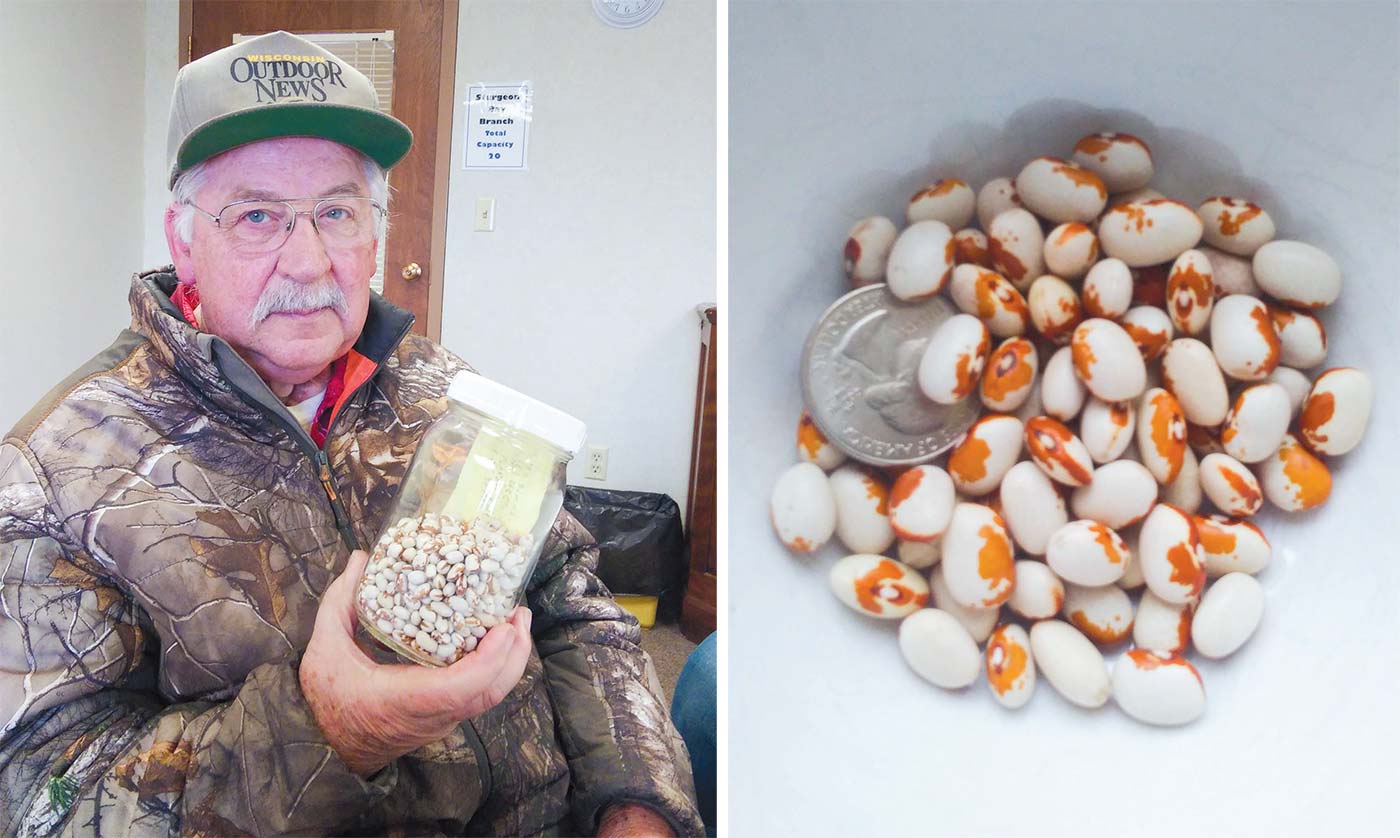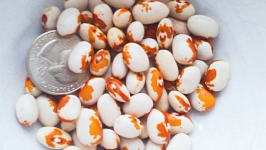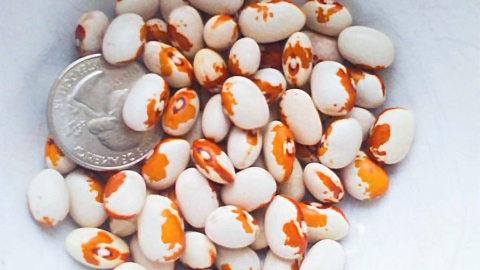The Story of Ken Paschke and His Bean
While beans have been cultivated since before memory, this world would be a less tasty and nourishing place without them. We pop open a can of beans with our hot dogs and burgers, and who does not relish the thought of home-baked beans with molasses and bacon? For America’s indigenous people, beans were one of the “Three Sisters” (beans, squash and corn), which were easy to store and provided consistent food through long, cold winters.
Ken Paschke has had a 55-year relationship with one of the “Sisters,” after he “borrowed” a few yellow-eyed beans from his friend and neighbor, Albert Teske. The ivory shade of the bean, punctuated with its golden “eye” is what first attracted him, he said. Ken is quick to point out that he also eventually purchased his friend’s 1952 Massey-Ferguson tractor, which makes it possible to till his small farm southeast of Sturgeon Bay that he shares with his wife, Nina.
After starting out with just a handful of beans for seed, Ken eventually grew enough to share them with others.
“After Ken donated his beans to our seed library, I reached out to Seed Savers Exchange and the Community Seed Network to see if they could help me identify the variety,” Penne Wilson, president of the Door County Seed Library said. “The consensus was that it was most likely a Kenearly yellow-eye bean, which had been developed in Nova Scotia. Because Ken had been saving the bean for decades, they told me that the bean had adapted to the unique climate and growing conditions of Door County and he ultimately created a new variety.
“Both our Seed Savers Exchange and the Community Seed Network suggested that the bean could be given a new name and that it made sense it be named after him,” Penne added. “So I checked with Ken and he agreed that we could name it after him.”
The Kenearly bean is believed to be the bean used for the original Boston baked beans, and Nina fixes the Ken Paschke bean that way. But they are also good in a bean salad, she explained. Ken smiled with a bit of pride to have a plant bearing his name.
Beans are not Ken’s only crop. This year’s garden will include three rows of zinnias and a row each of dried beans, Yukon gold potatoes, tomatoes, beets, leaf lettuce, cucumbers, carrots, dill, zucchini, buttercup squash and a small row of raspberries. He also has a spruce nursery, where he uses the tractors and an eight-horse tiller for a fenced-in area used as an incubator for seedling spruce trees.
“When the seedlings are two years old, we transplant them into what used to be an apple orchard,” he explained.
“Both our Seed Savers Exchange and the Community Seed Network suggested that the bean could be given a new name and that it made sense it be named after (Ken),”
— Penne Wilson, Door County Seed Library
GROWERS NEEDED
Deb Moore and her husband moved to Door County last year.
“I’m interested in seed saving and just so happened to come across the Door County Seed Library on Facebook and picked up a pack of seeds last spring and grew them,” she recalled.” “I have received an email from them saying they were looking for someone to grow some Paschke beans. I was excited because they’re similar to cannellini beans, which are my favorite, so I can also help preserve the seed heritage of Door County.”
Nancy Goldberg is on the board of the Door County Master Gardeners Association and the volunteer leader for the Heritage Garden at Crossroads at Big Creek just outside Sturgeon Bay. “They are unique to Door County, and it’s really neat to preserve them,” she said. Seed saving is an important function of the Door County Seed Library.
“Each year we ask for volunteer seed stewards to participate in our seed grow-out program to help us to preserve some of the valued varieties in our seed collection. In this program, the seed stewards grow out designated seeds from our collection, save the seeds, and donate a portion back to the seed library,” Penne said. “Seven seed stewards grew out this bean and saved seeds for us in 2020, and 14 people have signed up for our 2021 seed grow-out program. This program allows us to maintain our valuable seeds, and over time they will begin to adapt to Door County’s unique growing conditions. We hope that we will eventually come across additional 'unique-to-Door County' varieties like the Ken Paschke bean over time as people hear about our program so that we can help to maintain the varieties.
“We recently created a Facebook group called Door County Seed Savers, which is for our seed stewards and other people who want to learn more about the specifics of saving seeds,” said Penne. “This is more specific than our general Door County Seed Library Facebook page.
“For our seed grow-out program in 2020, volunteers grew out Ken Paschke beans and Grandmother Glady’s Yellow Belgian Tomato,” added Penne. “We selected this variety as a tribute to the Belgian heritage of Southern Door. An Indiana gardener has grown this variety for the last 18 years. She offers several seed varieties through the Seed Savers Exchange (where people offer seeds for free) and has had some of her varieties available for sale through Baker Creek Heirloom Seeds.
Here's what Penne said about this variety: ‘This is one of the very first seeds I got from Seed Savers, around 2002. It is one of my very favorite tomato varieties and I plant some of these every year. It matures in 80 days with attractive, bright orange-yellow, sweet, meaty and flavorful medium size round fruit. It is productive and does not crack and showed good heat tolerance during the 2012 drought. I did water and mulch but these set fruit when other varieties did not.’
“For our 2021 seed grow-out program, volunteers will be growing out Ken Paschke beans; and a Belgian Farmer Beefsteak tomato,” said Penne. “This is another variety that we received from the Indiana grower. She was excited to hear that we are growing out this variety this year, as the gentleman from whom she initially received the seeds and who was a very prolific tomato grower and breeder, died last year. It's another reminder of how quickly a variety can disappear forever if there isn't someone who's willing to steward the variety. Our goal is to help preserve and maintain this unique Door County seed. We hope that we will eventually come across additional 'unique to Door County' varieties like the Ken Paschke bean over time as people hear about our program so that we can help to maintain the varieties.”







